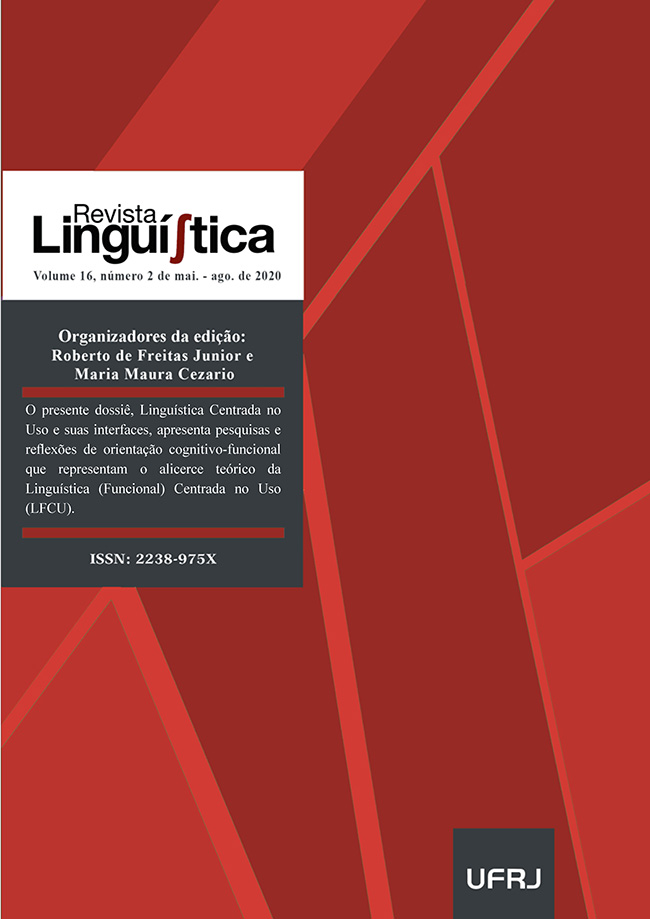Diachronic study of ordering of causal constructions with porque and por+infinitive based on functional principles’ perspective
DOI:
https://doi.org/10.31513/linguistica.2020.v16n2a33693Keywords:
causal constructions, porque, por infinitive, ordering, change.Abstract
The causal constructions connected by porque and por+infinitive share many similarities. Among them, there is the flexibility of position of the causal clause, which can come before, after or between the effect clause. In this article, we investigate the relation between these different possibilities of organization and general functional principles - iconicity and distribution of information – in Classic and Modern periods of Portuguese language. The main goal is to discuss possible changes in the syntagmatic organization of these constructions, motivated by the representation of causal relation that presupposes that causes precede effects and by the discursive principle that given information precedes new information. In this regard, we analyze a corpus of non literary texts written between 17th and 20/21st centuries. Through a quantitative analysis, we show that, contrary to expectations, causal clauses with porque and por+infinitive come predominantly after the effect clause in this time interval (17th – 21st), regardless of information status and sequentiality, which indicates the establishment of a default order.
Downloads
Published
Issue
Section
License
Authors who publish in the Revista Linguí∫tica agree with the following terms:
The authors maintain their rights, ceding to the journal the right to first publication of the article, simultaneously submitted to a Creative Commons license permitting the sharing with third-parties of published content as long as it mentions the author and its first publication in the Revista Linguí∫tica.
Authors may enter into additional agreements for the non-exclusive distribution of their published work (for example, posting in online institutional or non-profit repositories, or book chapters) so long as they acknowledge its initial publication in the Revista Linguí∫tica.

The journal Revista Linguí∫tica is published by the Post-Graduate program in Linguistics of UFRJ and employs a Creative Commons - Attribution-NonCommercial 4.0 International (CC-BY-NC).









